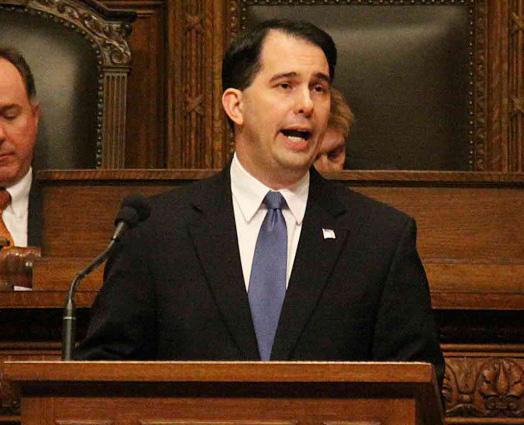The outcome of Tuesday’s election could have bigger implications than who will serve as Wisconsin’s governor for the next four years, with Gov. Scott Walker’s 2016 presidential bid hinging on the race’s outcome.
Walker has spoken openly about running for president in the past, but recently has not said much about his plans for 2016, professor Mike Wagner from the School of Journalism said.
“If Walker loses this race, it becomes really hard for him to run for president,” Wagner said. “He has not spoken up recently about his plans, but it’s hard to say whether this is because he no longer plans to run or because he is focusing on the midterm election first.”
Walker has stated publicly that he will not run against U.S. Rep. Paul Ryan, R-Janesville, who Wagner said is looking “more and more like someone who wants to run for president.” However, Wagner said whether or not he wins this election, there will be considerable pressure placed on him to run in 2016.
As for Tuesday’s election, Michael Flaherty, a senior lecturer in the Department of Life Sciences Communication and former Washington D.C. correspondent, said it is hard to pinpoint how specific issues are affecting swing voters.
He said although only 5-10 percent of voters remain undecided about the midterm election in Wisconsin, it is difficult to gauge how issues are swaying the state’s swing voters through polls since they are such a small percentage of the population.
Flaherty said he believes social circles will likely be a deciding factor for the small amount of the state’s undecided voters. Flaherty said this is especially true among young people since they tend to be less-informed voters, and thus, one politically-engaged friend can have a significant influence on many people.
“[For] younger people their world is school, their world is studying, typically a lower percentage of younger people are informed voters,” Flaherty said. “Say you had five friends, none of them who were really engaged, but you really were and they kind of looked to you for information and you send them stuff that reinforces your views and is also authoritative. That will likely have a larger effect on you than sharing a newspaper around.”
The engagement of youth voters has proved influential in past elections, and Flaherty said many attribute President Barack Obama’s 2008 victory to the participation of generally less-politically active groups, such as minorities and young people. How youths exchange information has a definite affect on what issues receive publicity, Flaherty said, adding that the recent allegations in the John Doe case is one of those issues.
In the latest release of nearly 16,000 emails from the John Doe probe, Walker allegedly conducted an “unethical” procurement practice by giving his campaign treasurer, John Hiller, confidential information in the bidding for a Milwaukee county property.
“Although all three bids were rejected due to cost constraints, giving one bidder more information than others went against general business practice and ethics,” University of Wisconsin senior lecturer and procurement expert John McKeller said.
Under ethics, under commercial guidelines and under public guidelines, that behavior is not acceptable, McKeller said.
The twists and turns of the John Doe investigation itself have become confusing to voters because the details are so complicated, Flaherty said. Instead, the greatest influence, especially among young voters, will likely be their friends, he said.
Omission of stories like this in discussions among younger populations will have big implications for both candidates, Flaherty said. In Walker’s case, it could potentially extend beyond Tuesday’s election and into the 2016 presidential race.


